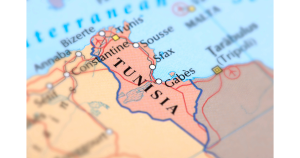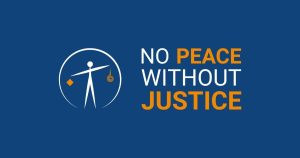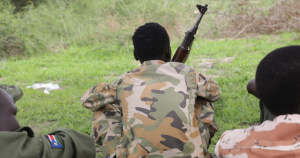On 6 May 2013, recently-elected Kenyan President Uhuru Kenyatta arrived in London for a three-day visit. The purpose of his trip was to attend a conference co-hosted by the UK and Somali Governments to rally international support for the rebuilding of Somalia . This was the first trip out of African soil since his election last March.
While Kenya’s strategic role in supporting Somali transition is undeniable, many are claiming that the UK ’s invitation to participate in a meeting in the presence of many States Parties of the International Criminal Court is, instead, a betrayal of that Court. The reason? President Kenyatta is charged before the ICC with crimes against humanity for his alleged involvement in the 2007-2008 Kenyan post-election violence. So, the reasoning goes, to meet publicly with an ICC-indictee betrays the very ideals the ICC was established to promote, including an end to impunity and redress and dignity for victims. Is that really the case, though? Is President Kenyatta’s participation in the conference alongside ICC States Parties really a betrayal of the Court?
To answer this question, we need to look at the facts and analyse them in legal and political terms, avoiding the trap of conventional denunciations and the finger pointing that is frankly too easy for a situation like this. First, President Kenyatta is not an ICC fugitive. He was requested by the Court to appear before it and he has complied. He went voluntarily to The Hague participating in the proceedings according to the Court’s rules and procedures. Next, the Court charged him with crimes against humanity. His response was to commit to continue to cooperate with the Court, including during his trial, which is set to start on 9 July 2013. Far from an ICC fugitive, President Kenyatta is doing precisely the right thing: cooperating with the Court and submitting himself voluntarily to its jurisdiction. Second, whatever we might think about the political appropriateness of the guest list of the Somalia 2013 Conference, the UK and the other governments present at the conference are fully complying with the UN guidelines on “essential contact” with persons wanted by the ICC. Those guidelines, which were redrafted just last April, clearly establish that there are no restrictions on interactions with persons who are the subject of an ICC summons to appear and who are cooperating with the Court.
The participation of President Kenyatta in the Conference is actually an implicit affirmation that he is allowed in precisely because he has cooperated with the ICC. This carries the implicit warning that he will only be allowed to participate in these kinds of events if he continues to cooperate. President Kenyatta has complied with the Court and has reaffirmed his commitment to abide by international obligations in the future. If there is a take-home message from this episode, it is that if you do not cooperate with the Court and abide by your international obligations, you are out of the international community; but if you do cooperate and respect international norms you can still play with the others leaders.
Therefore, President Kenyatta and the Kenyan Government must now be very careful and show cooperation with the Court at all times. Any move by President Kenyatta that suggests that he intends to renege on his pledge to cooperate or any attempts to question Kenya’s own obligations as anICC State Party will put President Kenyatta at serious risk. His freedom of movement around the world as well as his capacity to meet world leaders is now tied and depends on the assumption that he is willing to cooperate. However, if President Kenyatta or the Kenyan Government in any way question their obligations as an ICC-indictee and a State Party to comply with the orders of the Court, the ICC will be obliged to issue an arrest warrant, which is the only option according to the Rome Statute in case the person summoned to appear threatens not to or stops to cooperate. And that will change dramatically President Kenyatta status and his ability to participate to important negotiations around the world.
Importantly, the conference also offers the opportunity to ICC States Parties to remind President Kenyatta the importance of his continued cooperation with the Court and his obligation to provide effective accountability in Kenya for the post-election violence. The pursuit of justice cannot be undertaken solely by the ICC. Not only does the ICC focus on perpetrators at the highest level, Kenya has the primary responsibility to its citizens, including hundreds of thousands of victims, to provide accountability. The participation of President Kenyatta and his three co-accused in the trials at the ICC also give the Kenyan Government an opportunity to demonstrate its firm opposition to the perpetration of politically-motivated mass crimes. They have had this opportunity before, but so far, no criminal accountability process has taken place in Kenya to address the crimes committed in 2007-2008. Especially with the Truth Commission poised to deliver its report to President Kenyatta, which includes recommendations for prosecution, the Kenyan Judiciary must be put in a position to investigate and prosecute all those criminally responsible for the post-election violence in Kenya. Even as President Kenyatta shows the international community he is willing to be held accountable, he must ensure the hundreds of individual perpetrators in Kenya are likewise held to account, before a fair and impartial process that guarantees redress for the victims and protects the rights of accused persons.
This perhaps is the strongest message that ICC States Parties can deliver to President Kenyatta in London this week: continue to cooperate with the ICC and you can continue to play; but please make sure that the victims in your country who deserve redress and support receive it.
* An earlier version of this article has been published in the Daily Monitor (Uganda)




